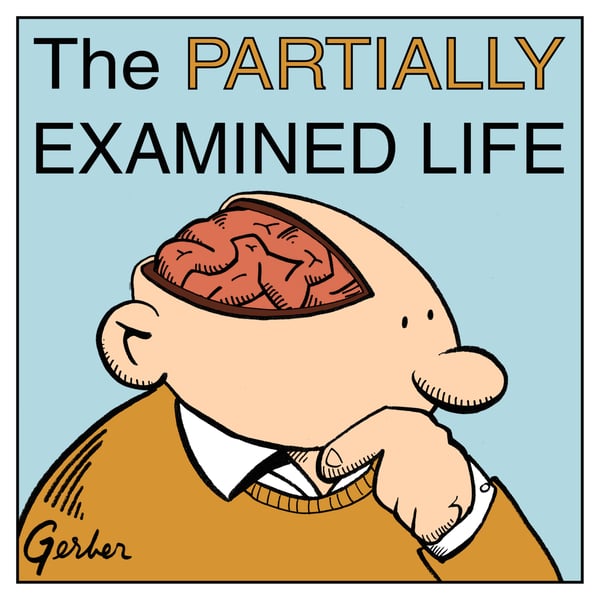Ep. 352: Thomas Reid on Smelling and Knowledge (Part One)
The Partially Examined Life Philosophy Podcast
Mark Linsenmayer
4.6 • 2.3K Ratings
🗓️ 7 October 2024
⏱️ 55 minutes
🧾️ Download transcript
Summary
On Inquiry into the Human Mind on the Principles of Common Sense (1764): the introduction, conclusion, ch. 2 "Of Smelling" ch. 4 "Of Hearing," and some correspondence between Reid and Hume.
According to Reid, the big mistake of "modern" philosophy is thinking that objects in the world need to resemble the sensations we have of them. Smelling is supposed to give us an obvious counter-example: the scent of a rose in no way resembles a physical rose.
Get more at partiallyexaminedlife.com. Visit partiallyexaminedlife.com/support to get ad-free episodes and bonus content.
Sponsors: Get a $1/month e-commerce trial at shopify.com/pel. Check out the Constant Wonder podcast.
Transcript
Click on a timestamp to play from that location
| 0:00.0 | You're listening to the partially examined life, a podcast by some guys who at one point |
| 0:11.2 | set on doing philosophy for a living living but then thought better of it. |
| 0:14.4 | Our question for episode 352 is something like, how can we best analyze the human mind? |
| 0:19.7 | And we read the first half from the conclusion of Thomas Reed's inquiry into the human mind on the principles of common sense from 1764. |
| 0:28.0 | For more information about the text and the podcast, please see partially examined life.com. |
| 0:33.0 | This is Mark Linton Wire with a soul accounting for my unique scent in Madison, Wisconsin. |
| 0:38.0 | This is Seth Paskin concluding immediately without reasoning from my senses in Austin, Texas. |
| 0:44.7 | This is Westall and one, rearranging the furniture of my understanding in Cambridge, Massachusetts. |
| 0:51.1 | This is Dylan Casey, entranced with the scent of a rose in Madison, Wisconsin. |
| 0:55.0 | All right, Thomas Reed, one of the better of the second stringers of the people |
| 1:00.0 | maybe you didn't study, even if you took a modern philosophy course but he is a really really solid writer |
| 1:06.4 | He was a direct respondent to Hume also in Scotland |
| 1:12.1 | But known as a common sense philosopher, you know, it's right there in the title. |
| 1:16.7 | I know he was in the ministry, he has some churchy background, but that doesn't show up that much in here like |
| 1:24.0 | ultimately he wants to say that they're just certain basic things the way the |
| 1:28.6 | way the world is and the only you know we could conclude from that that God said it up that way, but that's not supposed |
| 1:34.6 | to be necessarily informative or add to the theory, but the question is just sort of epistemologically, |
| 1:41.2 | what is basic? Is it as his predecessors were saying that we have only |
| 1:47.7 | certain knowledge of our own sensations that the only thing we're ever in |
| 1:52.3 | touch with is our own sensations, because he follows |
| 1:56.2 | the line from Descartes through Barclay and Malabranch to Hume to say that whole idea just leads to skepticism and skepticism is thoroughly repugnant, |
| 2:07.0 | surely there must be some better way. Let's actually pay attention to what is happening in our experience to our faculties and so he writes this |
... |
Please login to see the full transcript.
Disclaimer: The podcast and artwork embedded on this page are from Mark Linsenmayer, and are the property of its owner and not affiliated with or endorsed by Tapesearch.
Generated transcripts are the property of Mark Linsenmayer and are distributed freely under the Fair Use doctrine. Transcripts generated by Tapesearch are not guaranteed to be accurate.
Copyright © Tapesearch 2025.

